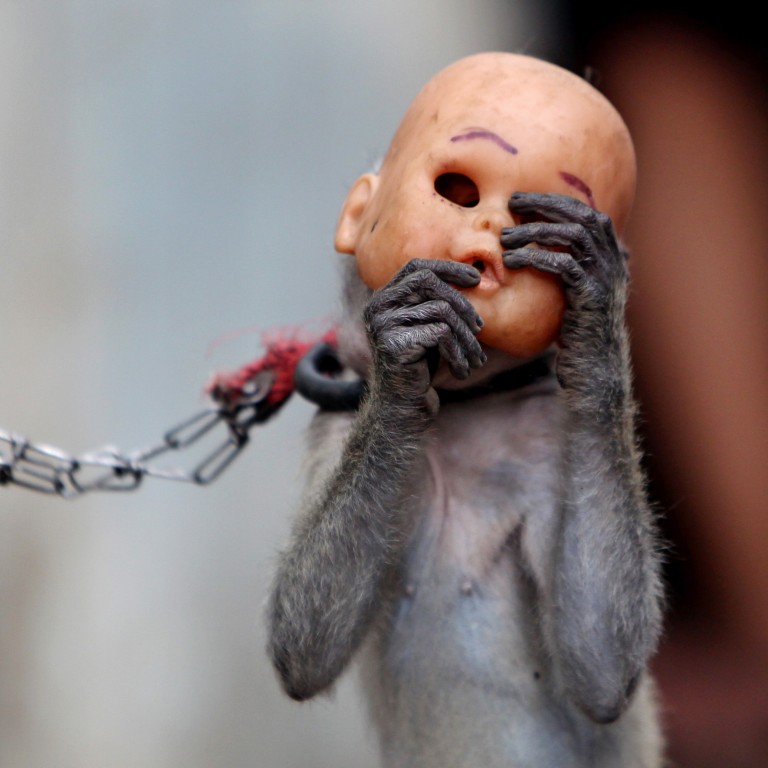
Monkey testicles on mice? Chinese scientists pave way for boys who die before puberty to reproduce based on bizarre experiment
Chinese scientists have bred a handful of macaques using sperm derived from juvenile monkey testicles transplanted onto mice, a development they claim will one day enable boys who die before puberty to leave offspring behind.
This could prove especially applicable in China, given its one-child policy, as a means of continuing a family’s lineage iin the event of the male heir passing away before he reaches his teens.
In layman’s terms, the researchers took part of the reproductive organs from one species and grafted them on to another.
Specifically, they removed testicular tissue from macaque monkeys, the youngest of which was 14 months old, and attached it subcutaneously to the backs of mice.
The experiment was led by Professor Sun Qiang at the Chinese Academy of Sciences' Shanghai Institutes for Biological Science. It was detailed in a paper published in the journal Cell Research last week.
"The successful demonstration of this method in primates [suggests] the feasibility ... for human fertility restoration," the authors said in the paper.
"To our knowledge, the current study represents the first report on the generation of primate offspring using the exografting method [the transplantation of tissue from one species to an alien species]," they added.
Sperm can remain frozen in storage for a long time without losing its viability, but it must be generated by a sexually mature male.
Sun’s team was investigating whether the tissue would keep growing once implanted on an alien host, and whether it would be able to produce healthy sperm.
Each ball-shaped piece of tissue they removed measured one to two millimetres in diameter. Most "survived and grew well in the mice", the team reported.
About 10 months after surgery, the "testicles" had grown large enough to produce mature sperm, they found.
This was surprisingly fast, because male macaques usually need at least four years to reach puberty.
The researchers injected the sperm into eight female monkeys. One miscarried and another gave birth, but the infant died within a few days.
That left six healthy infants, and a successful experiment.
Physical examinations were carried out to assess the body weight, abdominal and head circumferences, head-truck length, heart and respiratory rates and body temperatures of the survivors.
“No detectable abnormalities were found," Sun's team reported.
The testicles continued to grow after the transplant and kept producing viable sperm for up to 17 months. Genetic analysis showed the offspring inherited most of the marked traits of their fathers, the paper said.
Professor Liu Yixun, a biologist at the same academy’s Institute of Zoology, said the breakthrough yielded valuable information but was not something that could be used on humans - at least not for the foreseeable future. Liu was not involved in the latest research.
Previous studies have shown that, even though the first generation of offspring may seem healthy, there was a significant likelihood it would not be able to produce healthy babies, he said.
"Mice are very different from humans. Whether they are a suitable host for human sperm requires further study,” he said.
"Even if all the technical problems are solved, there are still a lot of ethical issues to deal with,” he added.

